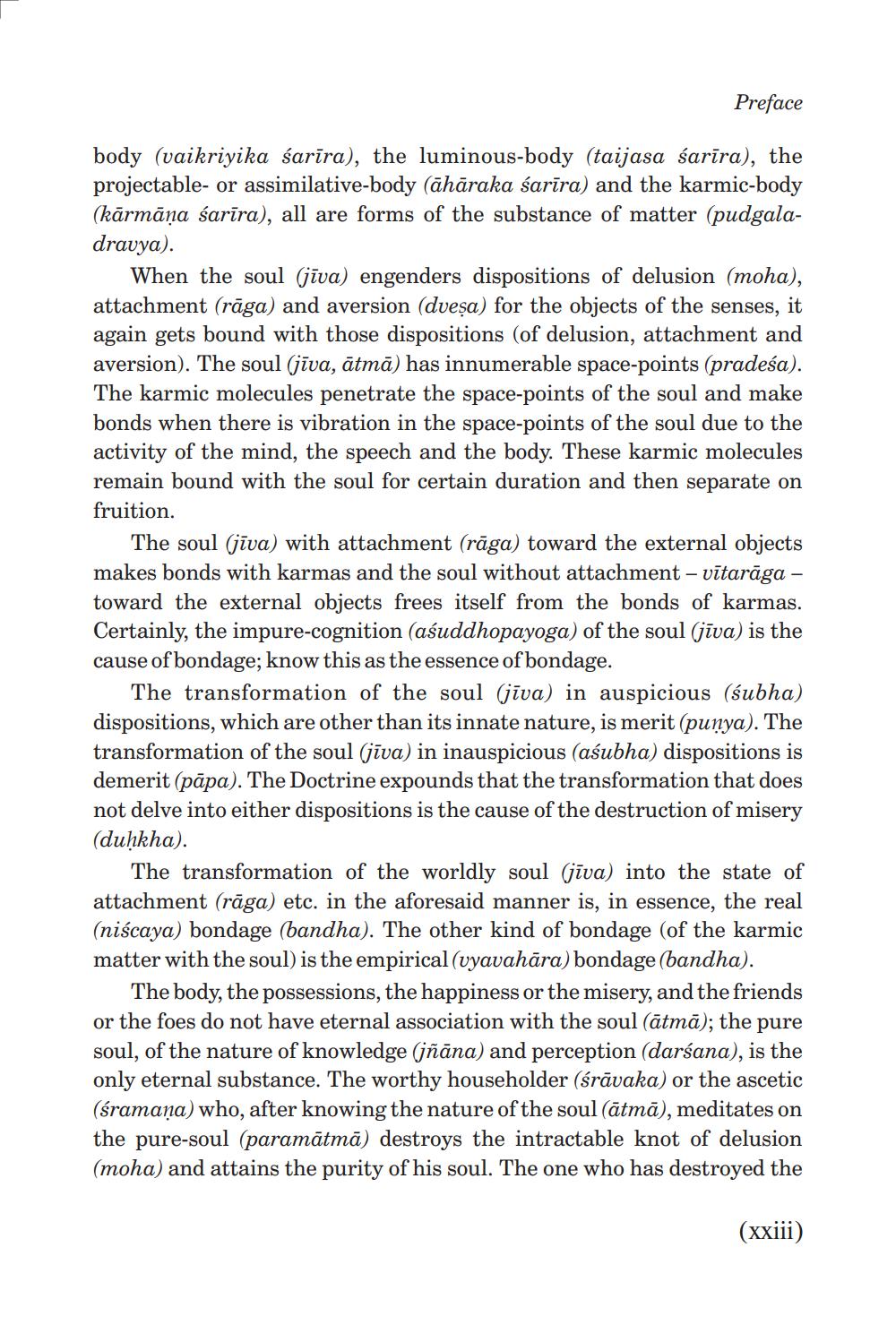________________
Preface
body (vaikriyika śarīra), the luminous-body (taijasa śarīra), the projectable- or assimilative-body (āhāraka śarīra) and the karmic-body (kārmāņa śarīra), all are forms of the substance of matter (pudgaladravya).
When the soul (īva) engenders dispositions of delusion (moha), attachment (rāga) and aversion (dvesa) for the objects of the senses, it again gets bound with those dispositions (of delusion, attachment and aversion). The soul (jīva, ātmā) has innumerable space-points (pradeśa). The karmic molecules penetrate the space-points of the soul and make bonds when there is vibration in the space-points of the soul due to the activity of the mind, the speech and the body. These karmic molecules remain bound with the soul for certain duration and then separate on fruition.
The soul (jīva) with attachment (rāga) toward the external objects makes bonds with karmas and the soul without attachment – vītarāga – toward the external objects frees itself from the bonds of karmas. Certainly, the impure-cognition (aśuddhopayoga) of the soul (jīva) is the cause of bondage; know this as the essence of bondage.
The transformation of the soul (jīva) in auspicious (śubha) dispositions, which are other than its innate nature, is merit (punya). The transformation of the soul (jīva) in inauspicious (aśubha) dispositions is demerit (pāpa). The Doctrine expounds that the transformation that does not delve into either dispositions is the cause of the destruction of misery (duḥkha).
The transformation of the worldly soul (jīva) into the state of attachment (rāga) etc. in the aforesaid manner is, in essence, the real (niscaya) bondage (bandha). The other kind of bondage (of the karmic matter with the soul) is the empirical (vyavahāra) bondage (bandha).
The body, the possessions, the happiness or the misery, and the friends or the foes do not have eternal association with the soul (ātmā); the pure soul, of the nature of knowledge (ñāna) and perception (darśana), is the only eternal substance. The worthy householder (śrāvaka) or the ascetic (śramaņa) who, after knowing the nature of the soul (ātmā), meditates on the pure-soul (paramātmā) destroys the intractable knot of delusion (moha) and attains the purity of his soul. The one who has destroyed the
(xxiii)




